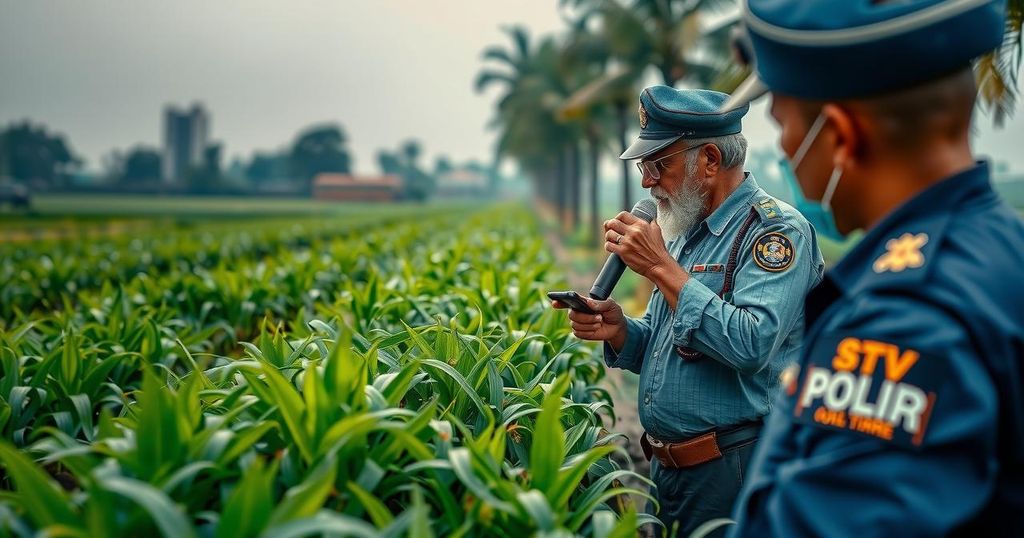Empowering Farmers at COP30: The Need for Focused Climate Solutions

COP30 in Brazil will focus on the intersection of agriculture and climate change, as agriculture contributes significantly to greenhouse gas emissions while being heavily impacted by climate effects. The session aims to address the urgent need for region-specific climate resilience strategies for farmers, particularly in developing nations.
The upcoming United Nations Climate Change Conference (COP30) in Belem, Brazil, will prominently feature agriculture in its discussions, acknowledging agriculture’s dual role as both a contributor to and a victim of climate change. Agricultural activities, such as deforestation and livestock farming, contribute roughly 10-12% of global greenhouse gas emissions, while the sector is simultaneously impacted by climate effects like extreme weather and erratic rainfall, threatening global food security amid a rising population.
The UN’s Food and Agriculture Organization (FAO) has been instrumental in addressing these issues at COP sessions, advocating for recognizing the interdependence of agriculture and climate solutions. At COP29, the FAO organized discussions on technology and climate financing for farmers, which yielded mixed results. Notably, new guidelines for carbon trading were established, and initiatives aimed at reducing methane emissions from organic waste were launched, emphasizing the urgency of tackling climate change.
However, significant issues, including tropical deforestation, were overlooked during COP29, highlighting gaps in multilateral agreements. As COP30 approaches, addressing the “Just Transition” for farmers is imperative, especially for those in developing countries like India. With diverse agro-climatic zones, tailored and context-specific solutions for climate resilience must be contemplated rather than one-size-fits-all approaches.
The nexus between agriculture and climate change is crucial, as agricultural practices are significant emitters of greenhouse gases and are profoundly vulnerable to climate fluctuations. The upcoming COP30 signifies an opportunity for stakeholder engagement in enhancing agricultural practices in line with climate strategies. Given the urgent need for sustainable solutions to secure food systems and environmental protections in the face of climate change, discussions at these conferences are essential.
In summary, COP30 is a pivotal moment for agricultural discussions, necessitating a focus on actionable, region-specific strategies to mitigate climate change’s impact on farmers, particularly in the Global South. A concerted effort to finance sustainable practices and foster innovations tailored to specific agricultural needs will be crucial to bolster food security and environmental resilience.
Original Source: www.outlookbusiness.com






